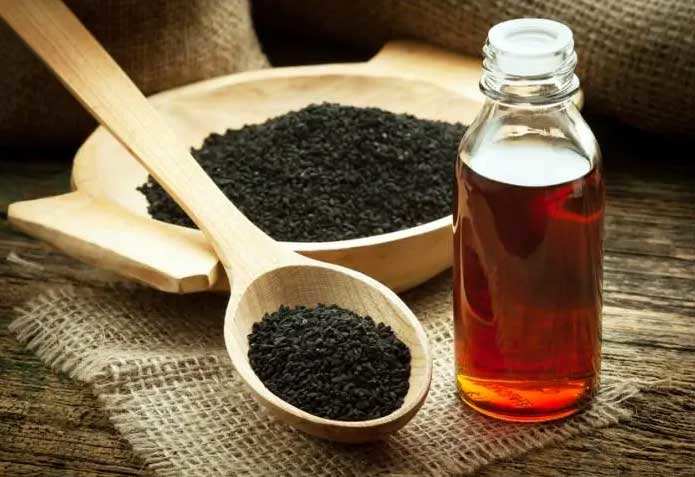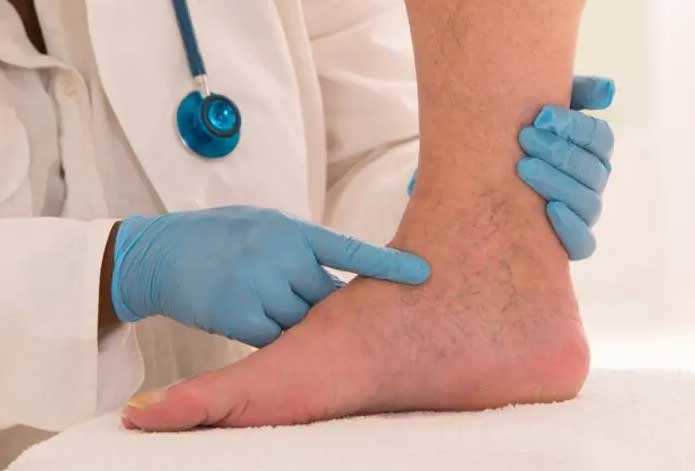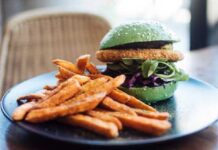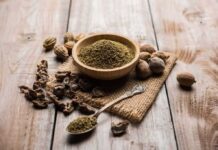
Diuretics are used to rid the body of extra fluid or salt. People with high blood pressure, heart failure, swollen tissues, and kidney disease often use diuretics to treat these conditions.
Extra fluid in the body makes it hard for the heart to work properly and can make breathing difficult.
Prescription diuretics are commonly called water pills, and their first effect is to increase urination.
Diuretics should not be used to achieve weight loss.
Fast Facts On Diuretics
Here are some key points about diuretics. More detail is in the main article.
- Diuretics can affect the levels of certain minerals in the body.
- Diuretics can be drugs, but some foods and drinks act as natural diuretics.
- Doctors can prescribe diuretic medication.
- There are also many foods and drinks that work as diuretics.
Types
Many people use diuretic medications that are prescribed by a doctor. However, some foods and drinks are also considered natural diuretics.
Types of diuretic medications include:
- thiazide diuretics
- loop diuretics
- potassium sparing diuretics
Thiazides decrease blood pressure at the same time as removing excess fluid, as they relax the blood vessels. They can help in cases of chronic heart failure. Chlorothiazide is an example.
Loop diuretics, for example, furosemide, are used in patients with pulmonary edema, high blood pressure, kidney problems, and heart failure.
Potassium-sparing diuretics do not reduce blood pressure, but they also prevent a loss of potassium. Amiloride is an example. They are considered weak diuretics, and they may be used with thiazides or loop diuretics. They must not be used with potassium supplements.
Natural Diuretics
Some foods, drinks, and spices can act as natural diuretics.
Nigella sativa

Nigella sativa, black cumin, black seed, or black caraway, is a natural diuretic that may be as effective as a popular prescription diuretic.
Nigella sativa increases urine output and in turn, reduces sodium and potassium levels.
The seed has a strong peppery flavor and is used in Indian and Middle Eastern cuisine.
Nigella sativa is being studied as a possible treatment for high blood pressure. High doses of Nigella sativa may cause liver damage.
Hibiscus
The Hibiscus sabdariffa plant works as a natural diuretic and also prevents the body from getting rid of potassium.
Hibiscus sabdariffa is also known as roselle or red sorrel. It is often used as a medicinal supplement or made into tea. Hibiscus tea is made by steeping the dried petals of the hibiscus flower in hot water.
Alcohol
Alcohol is a well-known diuretic that works by increasing urine output. However, alcohol has many adverse health effects and should always be consumed in moderation.
Dandelion
A common wildflower found in many parts of the Northern hemisphere.
Ginger
Both dandelion and ginger are popularly used in drinks and teas claiming to be detoxifying because of their diuretic qualities. No sound human studies have proven their effects, however.
Parsley
A studyTrusted Source found that parsley seed extract given to rats increased their urine volume significantly. Parsley has been used as a home remedy diuretic for many years.
Parsley is a popular herb in cooking. Used either fresh or dried, it pairs well with Italian cuisine, chicken, or fish.
Caffeine
Caffeine may have a mild, short-term diuretic effect. Caffeine is found in coffee, tea, soda, and energy drinks. People who regularly have drinks with caffeine can develop a tolerance to caffeine and will not see any difference.
Theophylline, a compound found in tea, enhances the diuretic effect of caffeine.
Uses
Swelling caused by excess fluid in the body’s tissues is known as edema. Mild edema often goes away on its own, but some cases need to be treated with diuretics.

Fluid retention can stem from many different medical conditions and some drugs. Anyone who is thinking of using diuretics to get rid of extra fluid should discuss the possible causes of fluid retention with a doctor first.
Diuretics can be helpful for people with kidney disease whose kidneys cannot filter potassium. This can cause a buildup that leads to serious health issues.
Diuretics can also alter the body’s levels of other important minerals such as magnesium.
Sodium, potassium, and magnesium levels must be checked frequently when using diuretics. Kidney function and blood pressure also need regular testing regularly.
Side-effects
Adverse effects of prescription diuretics can include:
- tiredness
- weakness
- frequent urination
- thirst
- dehydration
- muscle cramps
- dizziness
- skin rash
Risks
People should only use diuretics if they have a condition that causes their body to retain water, and they should only use drugs that are prescribed by their doctor.
The use of diuretic medications can lead to complications such as:
- kidney and liver problems
- worsening of gout symptoms
- risk of fetal or neonatal toxicity and preterm birth if used in pregnancy
Using natural foods like ginger or parsley as a spice or tea in food is considered safe. However, supplements are not regulated and may or may not contain what they claim.
It is important to consult a physician before increasing an intake of natural diuretic, especially if a prescribed diuretic or other medication is already in use.
Long-term use of diuretics can cause mineral deficiencies. As a result, mineral levels should be closely monitored while taking diuretics.
Some diuretics can lead to low levels of potassium in the blood. Symptoms of low potassium levels include:
- tiredness
- weakness
- constipation
- muscle cramping
- heart rhythm problems
Diuretics are not helpful for losing weight. Anyone who wishes to lose weight should follow a healthy, balanced diet and exercise regularly. Any weight lost will return as the body rehydrates.
Natural diuretics may not be effective in lowering high blood pressure or resolving other problems that diuretic drugs may be used for. Other medications may be needed for this.
A doctor may prescribe:
- angiotensin-converting enzyme (ACE) inhibitors
- angiotensin II receptor blockers
- beta-blockers
- calcium channel blockers
Before using any type of diuretic, first, speak to a health professional.
The natural diuretics listed in this article are available for purchase online.
- Shop for Nigella sativa.
- Shop for hibiscus tea.
- Shop for dandelion tea.
- Shop for ginger tea.
- Shop for dried parsley.
Sources:
- Dehkordi, F. R., & Kamkhah, A. F. (2008), Antihypertensive effect of Nigella sativa seed extract in patients with mild hypertension [Abstract]. Fundamental & Clinical Pharmacology, 22, 447-452
http://www.ncbi.nlm.nih.gov/pubmed/18705755 - Diuretics. (2010, September 1)
http://my.clevelandclinic.org/health/drugs_devices_supplements/hic_Diuretics - Diuretics overview. (n.d.)
https://bnf.nice.org.uk/treatment-summary/diuretics.html - Hobson, R. M., & Maughan, R. J. (2010, July). Hydration status and the diuretic action of a small dose of alcohol. Alcohol and Alcoholism, 45(4), 366-373
http://alcalc.oxfordjournals.org/content/45/4/366.long - Jiménez-Ferrer, E., Alarcón-Alonso, J., Aguilar-Rojas, A., Zamilpa, A., Jiménez-Ferrer, C. I., Tortoriello J, & Herrera-Ruiz, M. (2012, December). Diuretic effect of compounds from Hibiscus sabdariffa by modulation of the aldosterone activity. Planta Med, 78(18), 1893-8
http://www.ncbi.nlm.nih.gov/pubmed/23150077 - Kreydiyyeh, S. J., & Usta, J. (2002, March). Diuretic effect and mechanism of action of parsley [Abstract]. Journal of Ethnopharmacology, 79, 353–7
http://www.ncbi.nlm.nih.gov/pubmed/11849841 - Leong, X.-F., Rais Mustafa, M., & Jaarin, K. (2013). Nigella sativa and its protective role in oxidative stress and hypertension. Evidence-based complementary and alternative medicine,120732
http://doi.org/10.1155/2013/120732 - Leung, A. Y. (1996). Fosters Encyclopedia of Common Natural Ingredients. New York: John Wiley and Sons, Inc.
- Mayo Clinic Staff. (2014, September 19). Edema – definition
http://www.mayoclinic.org/diseases-conditions/edema/basics/definition/con-20033037 - Mayo Clinic Staff. (2016, June 10). High blood pressure (hypertension) – diuretics
http://www.mayoclinic.org/diseases-conditions/high-blood-pressure/in-depth/diuretics/art-20048129?pg=1 - Roberts, K. E. (1963). Mechanism of dehydration following alcohol ingestion. Archives of Internal Medicine, 112(2), 154-157
http://archinte.jamanetwork.com/article.aspx?articleid=568848 - Rull, G. (2016, December 30). Diuretics
https://patient.info/doctor/diuretics - Sheps, S. G. (2014, March 27). High blood pressure (hypertension) – can diuretics decrease your potassium level? Retrieved from .
http://www.mayoclinic.org/diseases-conditions/high-blood-pressure/expert-answers/blood-pressure/faq-20058432 - Webb, D. (2011, January). Hot & cold – despite tea’s popularity worldwide, research on its health benefits remains Inconsistent. Today’s Dietitian, 13(1), 32
http://www.todaysdietitian.com/newarchives/011211p32.shtml - Zeratsky, K. (2015, March 4). Weight loss – can natural diuretics reduce fluid retention and help with weight loss? Retrieved from .
http://www.mayoclinic.org/healthy-lifestyle/weight-loss/expert-answers/water-retention/faq-20058063
Important Notice: This article was originally published at www.medicalnewstoday.com by Megan Ware, RDN, L.D. where all credits are due. Medically reviewed by Suzanne Falck, M.D., FACP.
Disclaimer
The watching, interacting, and participation of any kind with anything on this page does not constitute or initiate a doctor-patient relationship with Dr. Farrah®. None of the statements here have been evaluated by the Food and Drug Administration (FDA). The products of Dr. Farrah® are not intended to diagnose, treat, cure, or prevent any disease. The information being provided should only be considered for education and entertainment purposes only. If you feel that anything you see or hear may be of value to you on this page or on any other medium of any kind associated with, showing, or quoting anything relating to Dr. Farrah® in any way at any time, you are encouraged to and agree to consult with a licensed healthcare professional in your area to discuss it. If you feel that you’re having a healthcare emergency, seek medical attention immediately. The views expressed here are simply either the views and opinions of Dr. Farrah® or others appearing and are protected under the first amendment.
Dr. Farrah® is a highly experienced Licensed Medical Doctor certified in evidence-based clinical nutrition, not some enthusiast, formulator, or medium promoting the wild and unrestrained use of nutrition products for health issues without clinical experience and scientific evidence of therapeutic benefit. Dr. Farrah® has personally and keenly studied everything she recommends, and more importantly, she’s closely observed the reactions and results in a clinical setting countless times over the course of her career involving the treatment of over 150,000 patients.
Dr. Farrah® promotes evidence-based natural approaches to health, which means integrating her individual scientific and clinical expertise with the best available external clinical evidence from systematic research. By individual clinical expertise, I refer to the proficiency and judgment that individual clinicians acquire through clinical experience and clinical practice.
Dr. Farrah® does not make any representation or warranties with respect to the accuracy, applicability, fitness, or completeness of any multimedia content provided. Dr. Farrah® does not warrant the performance, effectiveness, or applicability of any sites listed, linked, or referenced to, in, or by any multimedia content.
To be clear, the multimedia content is not intended to be a substitute for professional medical advice, diagnosis, or treatment. Always seek the advice of your physician or other qualified health providers with any questions you may have regarding a medical condition. Never disregard professional medical advice or delay in seeking it because of something you have read or seen in any website, video, image, or media of any kind. Dr. Farrah® hereby disclaims any and all liability to any party for any direct, indirect, implied, punitive, special, incidental, or other consequential damages arising directly or indirectly from any use of the content, which is provided as is, and without warranties.








